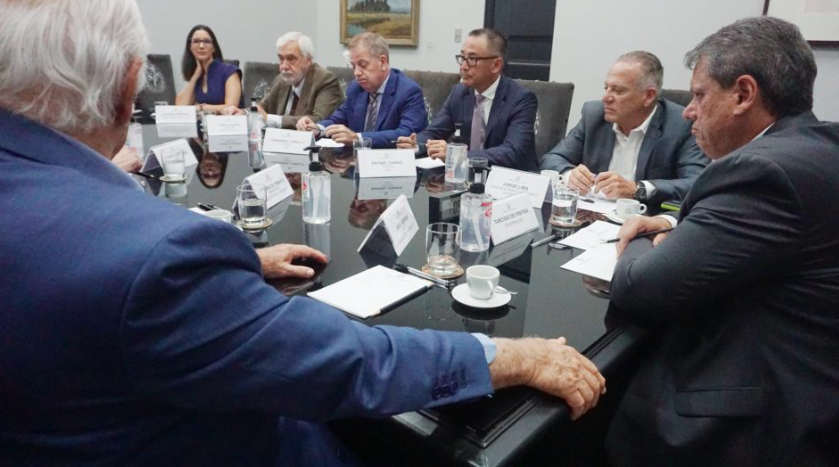The governor of São Paulo, Tarcísio de Freitas, announced this week a series of initiatives to make companies competitive and efficient and seek space in the so-called “tax war” between states.
On Tuesday (28), a day after announcing tax cuts for industry, he published a partnership with the Competitive Brazil Movement (MBC), a civil society organization that, among other initiatives, implements actions to improve governance and public administration management.
The goal is to replicate in the state of São Paulo the Brazil Cost reduction project done in partnership with the Ministry of Economy to circumvent bottlenecks such as the complex tax system and the legal insecurity companies face.

“Projects will be created to reduce the São Paulo Cost, increasing competitiveness and improving the business environment, besides greater legal security, debureaucratization of processes, among others,” said Jorge Lima, Economic Development Secretary of the state.
For Tarcísio, this project will be fundamental to identifying “where the shoe is squeezing” and preventing competitive companies’ growth.
“We have to be more aggressive in the tax field to attract more business to São Paulo,” he said.
REINDUSTRIALIZATION
The partnership with the MBC and the tax incentives are part of a broader project of reindustrialization of the state of São Paulo.
A 2022 study by the Institute for Industrial Development Studies (IEDI), based on data from the United Nations Industrial Development Organization, shows that for more than 10 years, the Brazilian Manufacturing Value Added (MVA) has grown more slowly than the world.
While the world’s AVM grew respectively by 2.3% and 3.6% in the periods from 2016 to 2020 and from 2011 to 2015, in Brazil, they decreased by 1.5% and 2.1%. In 2021, the world AVM will grow by 7.2% and the Brazilian by 4.8%, reaching a lower level than in 2000.
Part of the São Paulo government’s plans is also to establish a partnership with the São Paulo Federation of Industries (Fiesp), with actions in the areas of credit, infrastructure, energy, and professional qualification, in addition to tax measures.
Among the objectives is to anticipate the tax reform in the face of the uncertainties regarding its approval in Brasília and thus make companies competitive.
TAX INCENTIVES
On Monday (27), Tarcisio had already announced tax incentives that, through 11 decrees, reduce the ICMS for different productive sectors until the end of 2024.
According to the governor, the goal is to “promote the reindustrialization of the state and the competitiveness of the São Paulo industry.
“Even if at a first moment it leads to a reduction in tax collection, we expect that the waiver will leverage investments in the state with job and income generation,” he said.
LIST OF BENEFITS TO MAKE COMPANIES COMPETITIVE IN SÃO PAULO
Among renewals and unprecedented concessions, the decrees granted ICMS payment exemption, calculation base reduction, granted credit or deferment to different sectors, besides reversing benefits that were reduced because of the pandemic. They are:
- Milk-based beverages – ICMS reduction in internal exits from manufacturing or wholesale establishment
- Oat milk – ICMS reduction equivalent to the tax burden of 7% on sales of non-alcoholic, non-fermented, ready-to-consume oat milk drinks
- Electric energy – ICMS exemption for distributed generation and generating centers with an installed power of up to 5 megawatts
- Informatics – the special regime of ICMS taxation for informatics industry taxpayers
Data Center – suspension, deferment, and exemption of the ICMS in the acquisitions of equipment - Metallic packaging – tax collection deferment for the moment of alienation or exit of machines and equipment for metallic packaging manufacturers
- Wheel loader, hydraulic excavator, and backhoe loader – a tax credit for the a resulting tax charge of 5%
- Semiautomatic machine without centrifuge (tank) – credit so that the tax load of the manufacturer’s exits results in 3% in internal operations and 1.5% in interstate operations
- Cystic Fibrosis – ICMS exemption for operations with the drug Trikafta (active ingredients Elexacaftor, Tezacaftor, and Ivacaftor) for the treatment of the disease
With information from Gazeta do Povo

